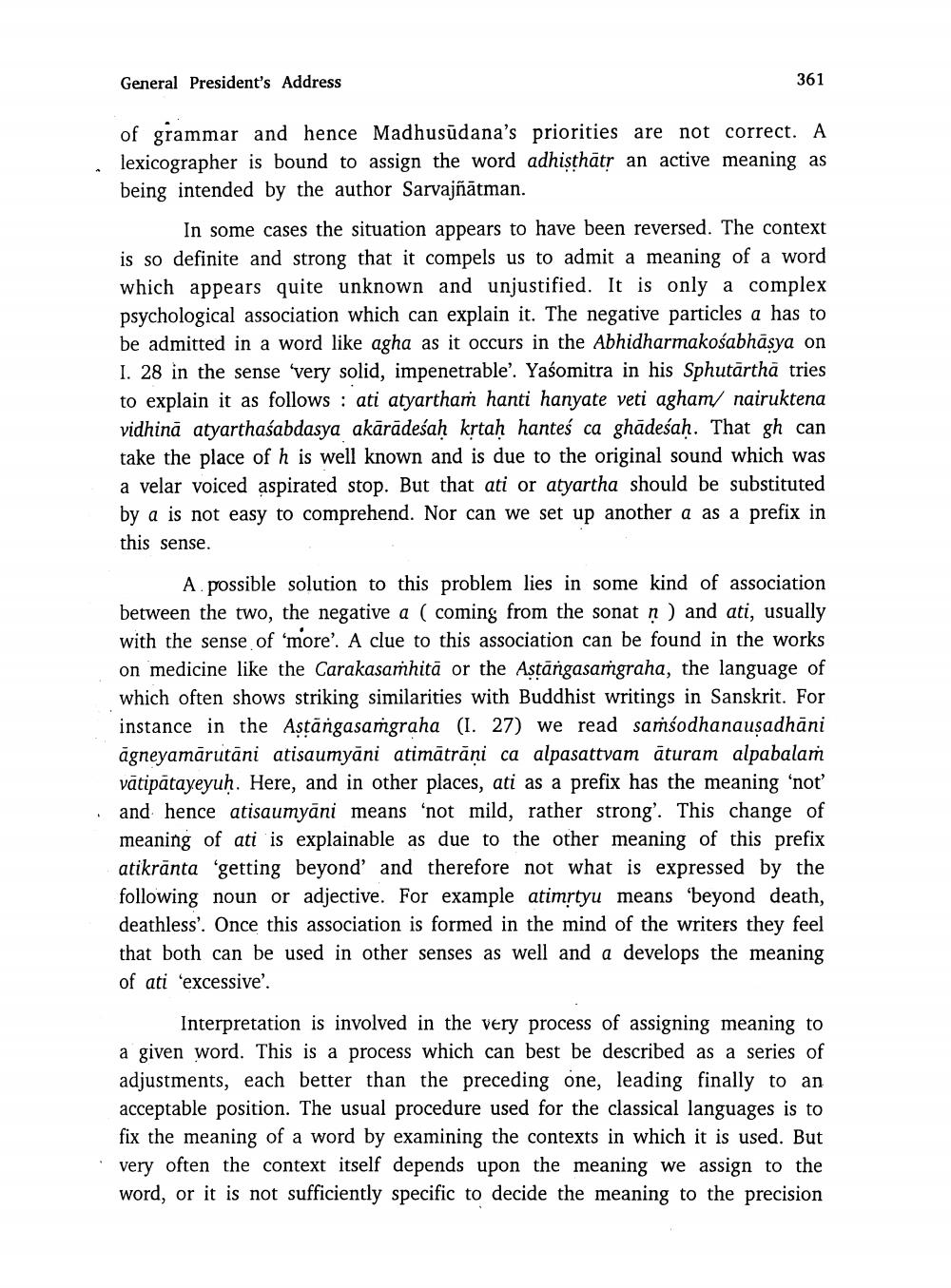________________
General President's Address
361
of grammar and hence Madhusūdana's priorities are not correct. A lexicographer is bound to assign the word adhisthātr an active meaning as being intended by the author Sarvajñātman.
In some cases the situation appears to have been reversed. The context is so definite and strong that it compels us to admit a meaning of a word which appears quite unknown and unjustified. It is only a complex psychological association which can explain it. The negative particles a has to be admitted in a word like agha as it occurs in the Abhidharmakośabhāsya on I. 28 in the sense 'very solid, impenetrable'. Yaśomitra in his Sphutārthā tries to explain it as follows : ati atyartham hanti hanyate veti agham nairuktena vidhinā atyarthasabdasya akārādeśaḥ krtaḥ hanteś ca ghādeśaḥ. That gh can take the place of h is well known and is due to the original sound which was a velar voiced aspirated stop. But that ati or atyartha should be substituted by a is not easy to comprehend. Nor can we set up another a as a prefix in this sense.
A possible solution to this problem lies in some kind of association between the two, the negative a ( coming from the sonat n ) and ati, usually with the sense of ‘more? A clue to this association can be found in the works on medicine like the Carakasamhitā or the Astāngasamgraha, the language of which often shows striking similarities with Buddhist writings in Sanskrit. For instance in the Astāngasamgraha (I. 27) we read samsodhanausadhāni āgneyamārutāni atisaumyāni atimātrāņi ca alpasattvam āturam alpabalam vātipātayeyuh. Here, and in other places, ati as a prefix has the meaning 'not' and hence atisaumyani means 'not mild, rather strong'. This change of meaning of ati is explainable as due to the other meaning of this prefix atikrānta 'getting beyond and therefore not what is expressed by the following noun or adjective. For example atimtyu means 'beyond death, deathless'. Once this association is formed in the mind of the writers they feel that both can be used in other senses as well and a develops the meaning of ati 'excessive'.
Interpretation is involved in the very process of assigning meaning to a given word. This is a process which can best be described as a series of adjustments, each better than the preceding one, leading finally to an acceptable position. The usual procedure used for the classical languages is to fix the meaning of a word by examining the contexts in which it is used. But very often the context itself depends upon the meaning we assign to the word, or it is not sufficiently specific to decide the meaning to the precision




